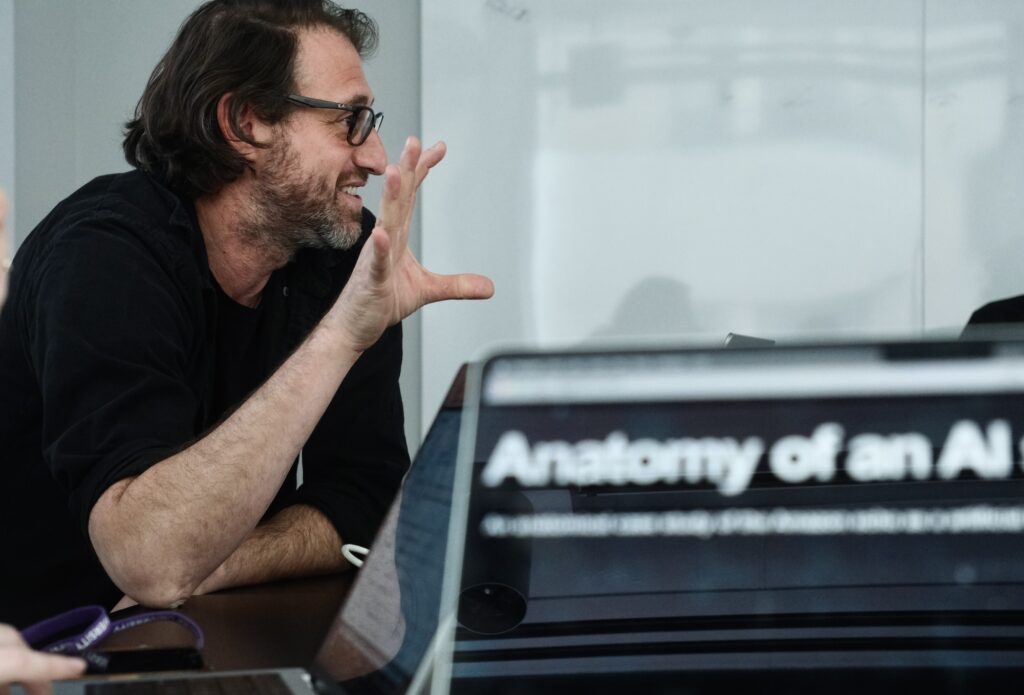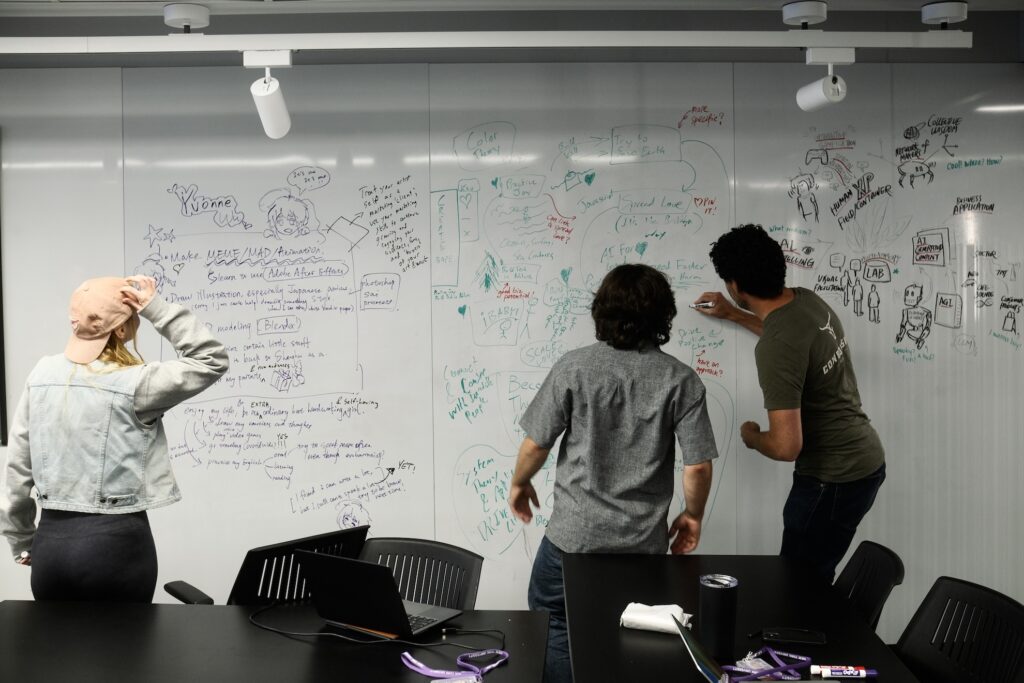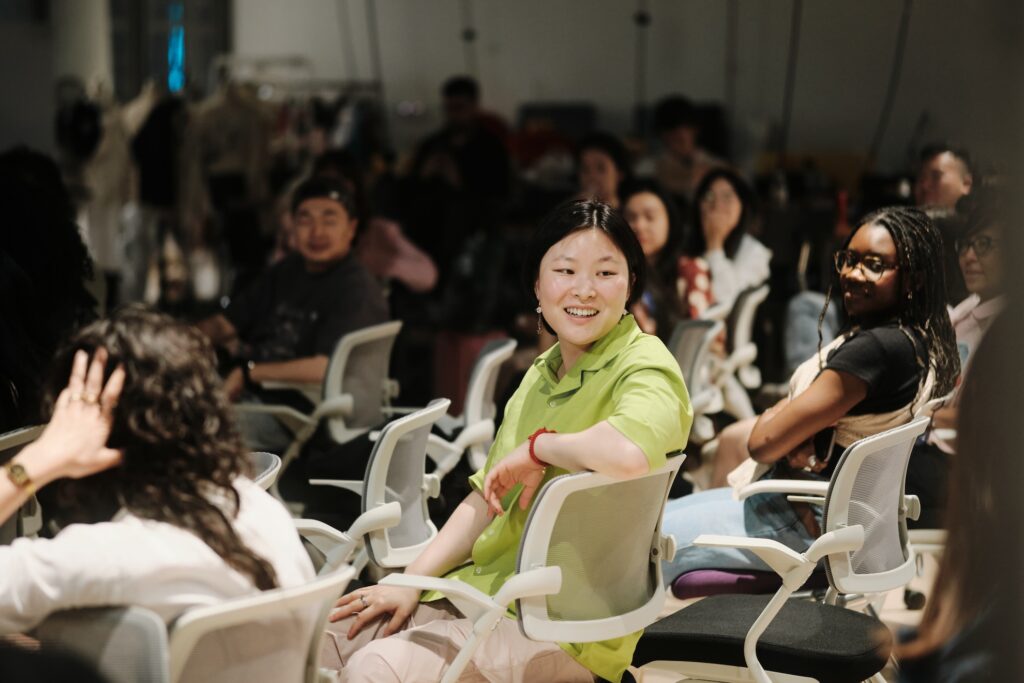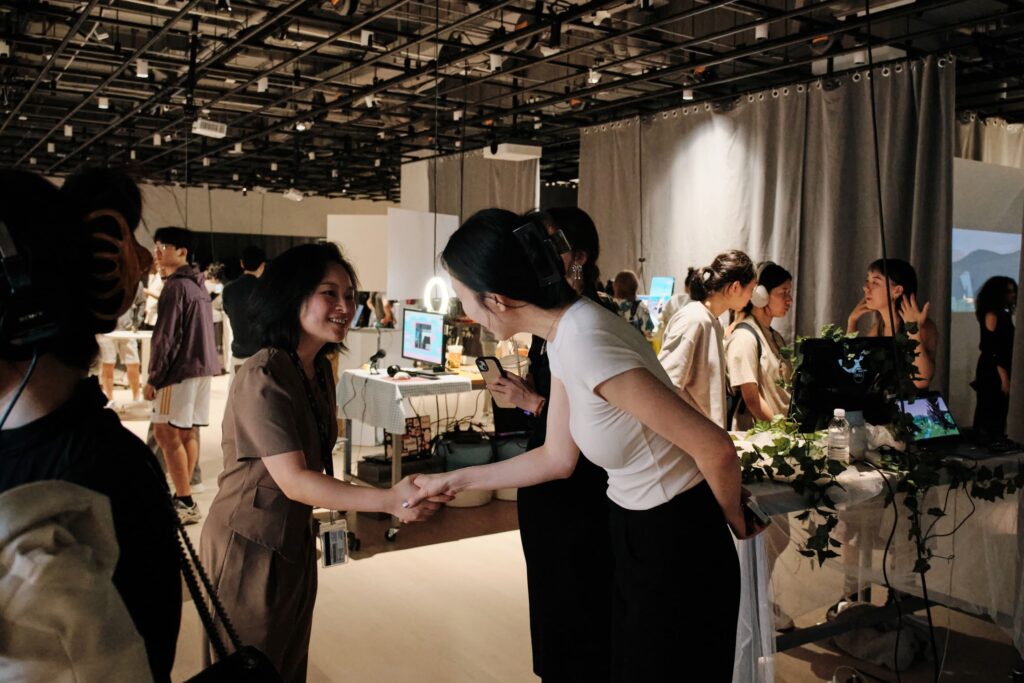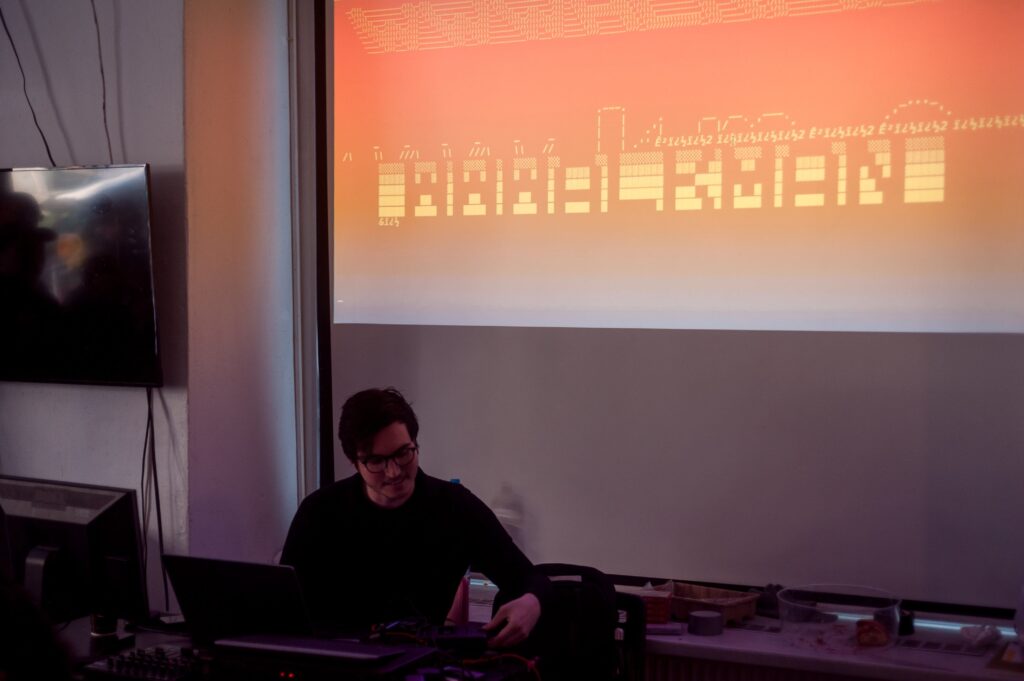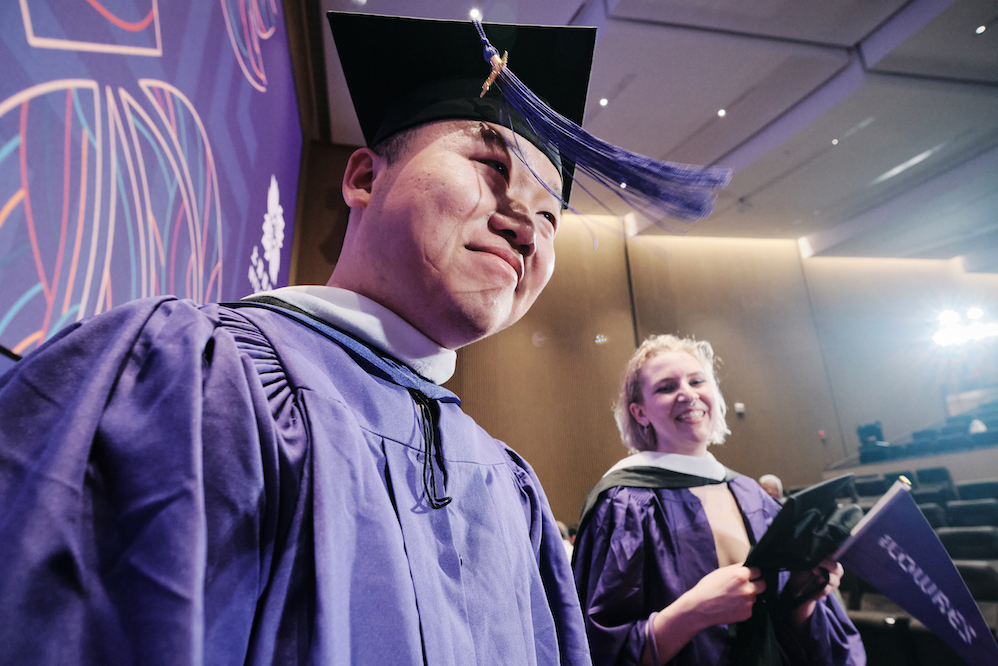IMA Low Res aims to attract an international and diverse group of highly motivated self-directed students including teachers, artists, creatives, policy-makers and other working professionals who would like to augment an existing career path or forge into new territories of professional or personal development. The program is also appropriate for students seeking a global academic experience that will provide opportunities to explore topics and issues of individual significance across a range of stimulating environments. While technical and/or artistic experience are welcomed, people from all background and experience levels are encouraged to apply. The strength of the community, and its predecessors, rests in the diversity of talents and perspectives that come together under the umbrella of a single program.
The graduate application for Summer 2026 is now closed. If you wish to be considered for a late application for our waiting list, please email midori.yasuda@nyu.edu for permission. Join our mailing list to receive followup information and join us at an open house to learn more!
Requirements
The following materials are required to complete an application to the IMA Low Res program.
- Online Application Form
- Personal Statement – We would like to get a sense of who you are in your own words beyond what we can infer from your resume/CV. We want to know how your experiences, successes, and failures have shaped how you see the world, what ideas you have and what you want to do. We would also like to know more about your interest in pursuing this Low Residency Global MA. This year-long program will involve a unique series of contexts and environments, specifically 3 in-person sessions in Shanghai, Berlin, and New York City interspersed by 2 online semesters. Please tell us what most interests you about this structure and how you envision the sequence progressing over the 12 months. (Limit: 1,000 words.)
- Video Response – In a short video (1-2 minutes), we’d like you to tell us in your own words about the issues, local or global, that you care most about. These might be global concerns relatable across cultures and nations. Or they might be local topics primarily relevant to your individual home and personal experiences. Please share with us 2 or 3 areas of concern that are meaningful to you and what role, if any, do you think the creative application of technology plays in one/either/all of them? Note, this video does not need to be heavily produced. While we welcome your creativity, we are really interested in hearing what you have to say.
- Resume / CV
- Two Letters of Recommendations
- Official Transcripts showing at least a bachelor’s degree
- English Language Test Scores – Students whose native language is not English need to submit an English proficiency exam (TOEFL, IELTS or Duolingo). Students can be waived from the language proficiency exam if they completed a bachelor’s degree at a university where English was the primary language used for instruction. Please refer to the Tisch Graduate Admissions site for more information on language proficiency.
- Creative Portfolio (optional, but highly encouraged)
- Financial Aid form (if you are looking to apply for departmental scholarship aid, please fill out CSS profile due by February 20. We will also send a reminder to all accepted candidates to fill out this form later in the process.
FAFSA (optional, U.S. citizens or eligible non-citizens only*) – Students who wish to be considered for financial aid must complete the FAFSA (Free Application for Federal Student Aid). Please note that Non-U.S. citizens do not qualify for US Federal grants and loans, and thereby do not need to file the FAFSA from the U.S. government.
All applicants must apply online. Please note, for those also considering applying to the ITP program, you will not be permitted to apply to both the IMA Low Res and ITP graduate programs in the same application year.
What are we looking for?
This program, like the ITP and IMA cultures from which it derives, is a creative, multidisciplinary environment in which diversity is valued and collaboration is encouraged. A background in art, design or computer programming is not required for acceptance into the program. We are looking for applicants from a diverse range of undergraduate educational and professional backgrounds who want a first-hand understanding of the production and implications of interactive media systems, from the devices and networks on which they run to the range of expressive possibilities which they afford. Demonstrating an interest in real-world challenges along with a desire to investigate current aesthetic, social, political and ethical issues is encouraged.
Acceptance into the IMA Low Res program is equally competitive as the ITP program. We are looking for 32 imaginative, ambitious and generous students to join the cohort each year. Enrollment is limited to applicants who show exceptional promise and are interested in collaboration and experimentation. Students must be able to commit to the full program of one summer session in New York (5 weeks), one January session in Berlin (3 weeks), one summer session in Shanghai (5 weeks), and two remote semesters in the Fall and Spring. During the in-person sessions, the expectation is that your work-day time will be fully dedicated to the program. During the remote sessions, there will be more flexibility with your time and schedule.
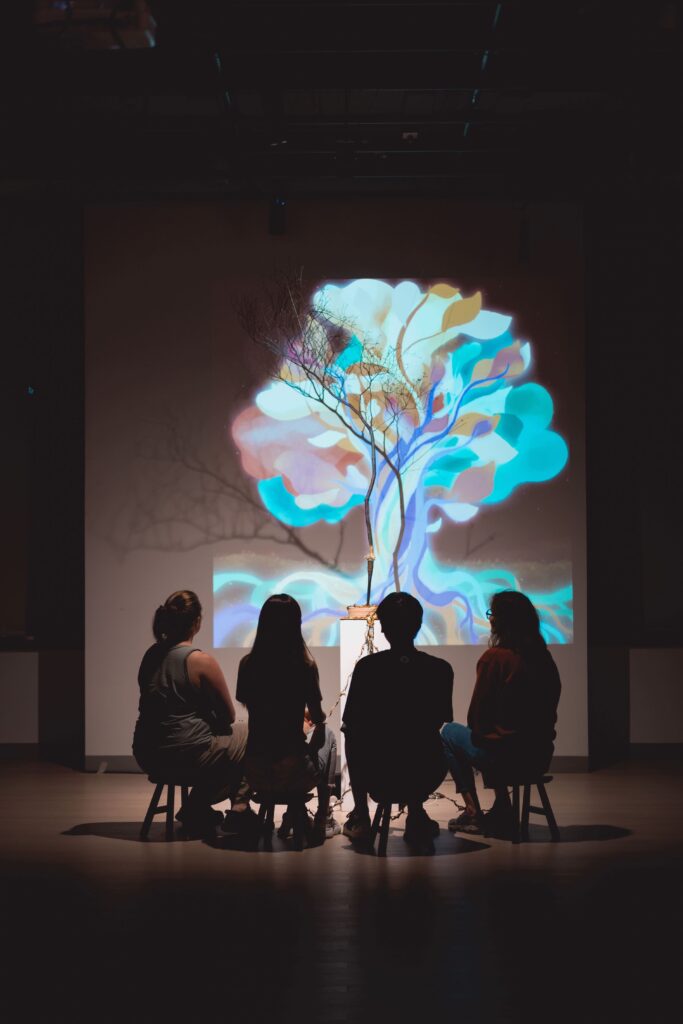
Tuition Cost & Financial Aid
Students from all stages in their careers are welcome to apply for graduate study in interactive media at IMA Low Res. However at any stage, affordability is probably the biggest hurdle for students to be able to attend graduate school. A main priority of the department is to work with all of our students, including international students, to create a feasible financial plan that will make graduate study at IMA Low Res more accessible to a wide range of students.
Tuition
Please refer to the NYU Bursar’s website for updated tuition costs. The following is the finalized cost in USD per term for the 2024-2025 Academic Year of tuition and registration/services fees:
| Term | Location | Credits | Tuition (USD) | Fees (USD) | Tuition+Fees |
| Summer 2025 | New York | 9 | $22,401 | $285 | $22,686 |
| Fall 2025 | Online | 7 | $18,123 | $0 | $18,123 |
| J-Term 2026 | Berlin | 3 | $7,767 | $0 | $7,767 |
| Spring 2026 | Online | 7 | $18,123 | $0 | $18,123 |
| Summer 2026 | Shanghai | 6 | $15,534 | $0 | $15,534 |
| Total | 32 Credits | $82,233 |
*This does not include traveling & housing costs to the three global sites.
Departmental Scholarship & Financial Aid
Tisch School of the Arts Scholarships
IMA Low Res provides departmental scholarships funded by the Tisch School of the Arts on the basis of financial need, educational excellence and professional promise. All accepted candidates are encouraged to apply for scholarship aid by filling out the CSS profile and FAFSA (for US citizens and eligible non-citizens ie. Green card holders) by February 20. Applying for financial aid will not impact admissions decisions. Financial aid requests are taken into consideration after applicants have been accepted. Scholarship consideration is competitive and we do our best to allocate funding based on a combination of need and merit. IMA Low Res departmental scholarships range in size from a few thousand dollars up to full-tuition scholarships. Scholarships are applied toward tuition only (scholarships cannot be used towards covering fees, materials or travel/living expenses). Scholarships can only be used to cover up to the 32 credits required to complete the degree. While scholarship aid is limited, most students who express need for financial assistance will receive some level of scholarship funding toward tuition with the hope that it will be enough to allow them to attend IMA Low Res. Students who receive departmental scholarship aid will receive an award letter with their admissions acceptance offer in the form of a Tisch School of the Arts scholarship.
NYC Mayor’s Graduate Scholarship Program
IMA Low Res is participating in the NYC Mayor’s Graduate Scholarship Program to provide an opportunity for full-time New York City government employees, with undergraduate degrees, to pursue graduate studies in interactive media! We will offer one scholarship (may cover partial or full tuition) for an NYC government employee via application only. Applicants must apply to both IMA Low Res, NYU and also to the Mayor’s Graduate Scholarship Program at the link above. MGSP recipients are still required to complete the degree in 1 year with the rest of their cohort.
Student Loans
All U.S. applicants who are 1) accepted and 2) filed the FAFSA (Free Application for Federal Student Aid), will receive a financial aid package from NYU. U.S. applicants are strongly urged to complete the FAFSA by February 20.
International Students
International students are urged to look for outside sources of funding well in advance of the acceptance notice, but will also be considered for IMA Low Res departmental scholarships but must complete the CSS profile in order to be considered. IMA Low Res values the diversity that international students bring to the program and will consider international students for Tisch-based scholarships in the same way we do for U.S. applicants if you are selected for admission. International students can secure private educational loans from U.S. institutions if they have a cosigner who is a U.S. citizen. If financial aid is an important aspect of your application, don’t overlook funding opportunities from your home country, and from foundations that are internationally based, along with all possible personal, family and local resources. Here is the link to Tisch Student Affairs Financial Aid.
Open House
Every Fall, we host online Open House sessions for prospective students. Please join our mailing list to receive notification for upcoming sessions.
Below is the 2025 Open House Schedule for Summer 2026 prospective candidates:
Thursday, November 13, 2025 – here is the Zoom recording!
Friday, October 3, 2025 – here is the Zoom recording!
Prospective students in China can schedule a campus tour to visit NYU Shanghai. Please email Michelle Hua.
Prospective students interested in visiting the ITP Floor in Brooklyn, New York, please email Midori Yasuda.
Contact IMA Low Res
General Inquiries
LowRes@itp.nyu.edu
New York
(+1) 212-998-1882
Midori Yasuda: midori.yasuda@nyu.edu
ITP/IMA, Tisch School of the Arts
370 Jay Street, 4th Floor
Brooklyn, NY 11201
Shanghai
(+86) 21-20595004
Michelle Hua: yh1694@nyu.edu
Arts and Sciences, NYU Shanghai
567 West Yangsi Road, North Building, 7th Floor
Pudong New District, Shanghai, China 200124
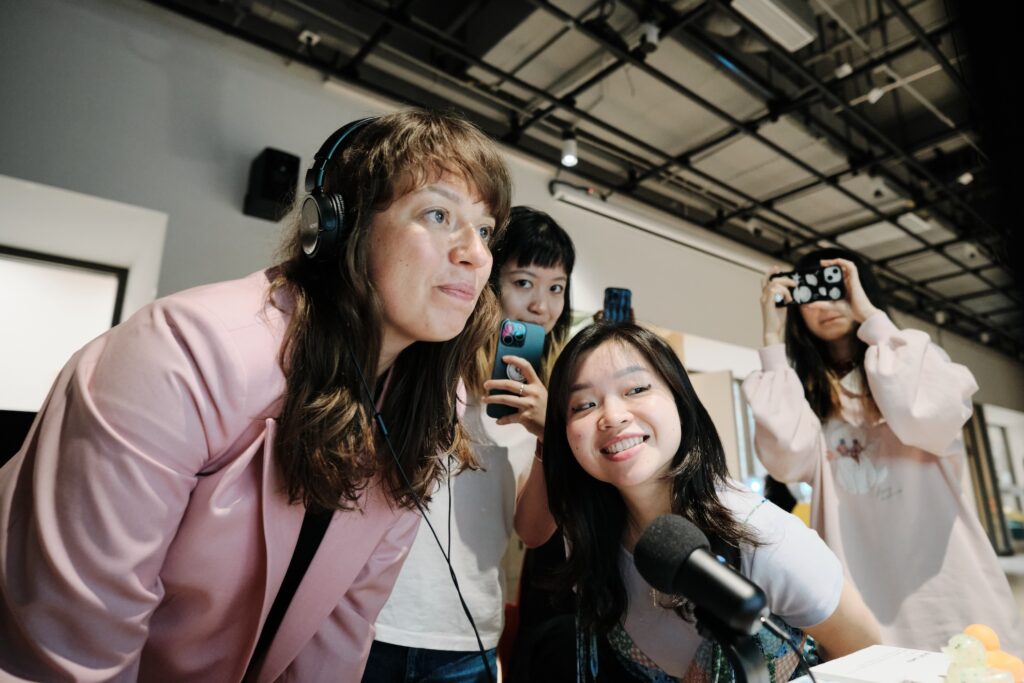
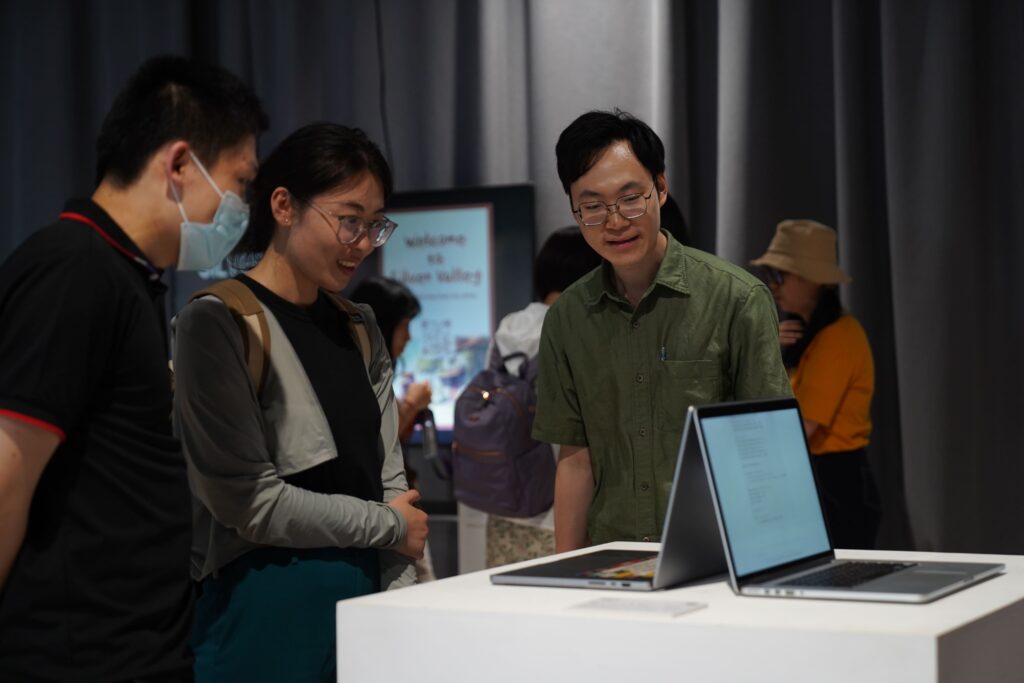
FAQ
What is ITP, IMA and IMA Low Res?

ITP is the Interactive Telecommunications Program, a two-year graduate program located inside the Institute of Emerging Media in the Tisch School of the Arts at NYU whose mission is to explore the imaginative use of communications technologies — how they might augment, improve, and bring delight and art into people’s lives. Founded in 1979, it was the first graduate program of its kind and remains among the most prestigious in the world. Perhaps the best way to describe ITP is as a Center for the Recently Possible.
IMA is the Interactive Media Arts Program, which was inaugurated at NYU Shanghai in 2013, initially as an undergraduate major. Developed out of ITP, IMA has distinguished itself within NYU Shanghai’s Liberal Arts curriculum and grown into one of the most popular programs on campus. Since then, IMA sister programs have taken root at NYU New York as the IMA major and at NYU Abu Dhabi as the Interactive Media (IM) major. With this joint Low Res MA degree with Tisch School of the Arts, the IMA program at NYU Shanghai is now expanding to encompass graduate-level education.
IMA Low Res is the newest Master’s program created jointly between ITP at Tisch School of the Arts and IMA at NYU Shanghai. This new program aims to provide an environment for makers of all stripes to explore the application and implication of new technologies in art, science, engineering, design and the humanities. It also aims to provide a more affordable and flexible format for graduate study by experimenting with formats beyond the traditional residential program structure. It does so through a series of intensive, immersive residencies spread across three NYU locations combined with online virtual classes and resources.
Can you be more specific about the difference between this IMA Low Res and the ITP graduate program?
Both IMA Low Res and ITP are graduate programs offering Master’s degrees with classes small by design (12-16 students). ITP is a 2-year, full-time graduate program that requires 60 credits to complete the Master of Professional Studies (MPS) degree. An MPS is accepted as a “terminal degree” when applying for teaching positions at universities. The ITP student experience in New York is very community oriented with all of the classes meeting in-person.
The two years at ITP allows for a wider and deeper research-oriented exploration, with enough time to find and follow unexpected ideas. Also, the larger student body at ITP allows for a greater diversity of curriculum and communities where people and classes have the time and space to forge into radical terrain. The sustained structure and discipline of the two-year collaborative residential experience leads to extremely deep relationships with the ideas, practices and most importantly people in the program.
In comparison, the Low Res is a 1-year, 32 credit program that grants a Master of Arts (MA) degree jointly from the Tisch School of the Arts and NYU Shanghai. The Low Res program requires study abroad in 3 different locations (Shanghai, Berlin and NYC) as well as online semesters during the Fall and Spring terms where students return to their home countries. Connecting the global locations increases the value for students as they benefit from the human network and diversity of contexts. Our colleagues across these sites have forged strong, ongoing relationships and community partnerships with local industry, non-profit organizations, cultural organizations, artists, designers, developers, thinkers, maker communities and more.
Given the smaller cohort of students and the 12-month sequence of three in-person plus two remote sessions, the curriculum for IMA Low Res is more directed than what is regularly offered at ITP. It still provides students with ample room for personalized exploration and self-directed learning, but the courses are more curated than the traditional residential program and designed specifically for students in the Low Res.
The intensive in-person sessions involve full-time commitment and students are expected to be wholly dedicated to the program during this time. The remote sessions, while maintaining a high-level of academic rigor and work-load, aim to allow students to continue professional pursuits in parallel with their studies and course work.
I still can’t decide if I should apply to ITP or IMA Low Res. Can you give me any suggestions?
The IMA Low Res is a great option for working professional students who cannot take 2 full-time years away from their careers or homes. It’s also a great option for students who have the desire and flexibility to study in locations around the world and also have the discipline to stay focused during the online semesters to continue with their studies and hands-on project development. The program serves to enhance and augment an individual’s existing career path as well as lay a foundation to pursue new paths of interest. A strength of this program is that it allows students to build upon a professional foundation they have set for themselves and extend their reach into new terrain.
Students interested in creative approaches to design and education will find this program especially fertile ground for continued work and research. Also, students who may have an existing area of inquiry or professional goal will be able to leverage the program as scaffolding to offer cross-cultural insights and global context towards their own interests. Integrating personal and professional experience will be welcomed throughout the program.
Do I need technical or design skills before applying to the IMA Low Res program?
No! Both ITP and IMA Low Res do not require applicants to be a programmer or designer before applying to the program(s). In fact, the more diverse your background the better! We would love to see dancers, poets, philosophers, lawyers, biologists, tinkerers, actors, policy-makers, musicians as well as programmers and designers all mix together and make something creative using interactive technologies. The technical skills and “learning how to code” are incorporated into the curriculum.
The focus of the program is not solely on applied skills though. Rather, we want our students to explore and analyze interactive media from a humanistic, environmental, and communications perspective. Cultivating thoughts, ideas and conversations around the development, use and implications of the technology is the goal, not a fluency in any one specific tool.
Can I take classes at ITP or transfer into ITP after finishing IMA Low Res?
The IMA Low Res and ITP are separate standalone programs. Students will not be able to cross-enroll in classes outside of their designated program. The Low Res curriculum and schedule has been designed specifically for its students and will be dedicated only to students enrolled in the MA degree. Also, students in either program will not be eligible to transfer credits towards a degree in the other.
However, it’s also worth noting that during the Fall and Spring remote semesters, IMA Low Res students will continue to have the privilege to access both the ITP Facility in New York and the IMA Facility in Shanghai. Collaborations between current ITP, IMA, and IMA Low Res students, faculty and residents are welcomed and encouraged.
As a non-US student, can I stay in New York for the remote Fall Semester as well?
For the summer session in New York, non-US students enter the United States via an F-1 Visa. This visa allows for entry up to 30 days prior to the start date of the program and an exit date of up to 60 days after the program end date. Please contact us directly if you have questions specific to your own situation or status.
Is IMA Low Res a STEM Program? As an international student, will I have work privileges (e.g. OPT, CPT) in the US after graduation?
While IMA Low Res is certified as a STEM (government-designated science, technology, engineering, or mathematics) graduate program by the NYU Institutional Research Office, international students will not be qualified for any specific work privileges due to the limited time spent in the United States during the program. These work privileges are often referred to as “Optional Practical Training” (OPT) and “Curricular Practical Training” (CPT).
What does the diploma look like, and which graduation ceremonies do IMA Low Res students attend?
The diploma is identical to any other NYU Master of Arts diploma, with both the Tisch School of the Arts and NYU Shanghai listed, as this is a joint program. IMA Low Res students have the unique opportunity to attend up to four graduation ceremonies: the All-University Commencement in New York City, the Tisch Salute at Radio City Hall in Manhattan, the NYU Shanghai Graduate Convocation, and the final IMA Low Res-only graduation at NYU Shanghai. Here’s an example of former students participating in all four ceremonies.
